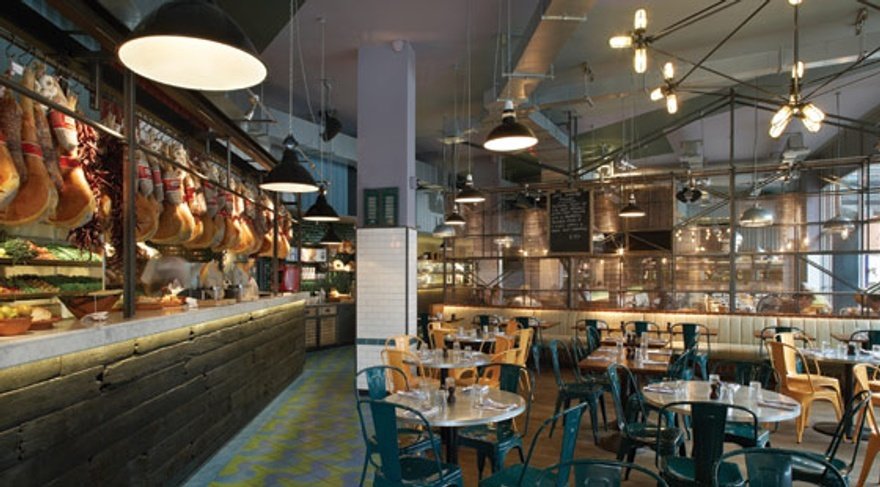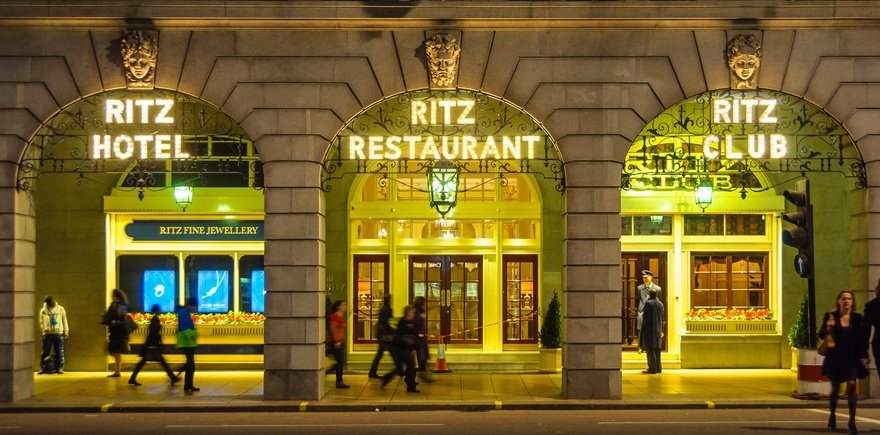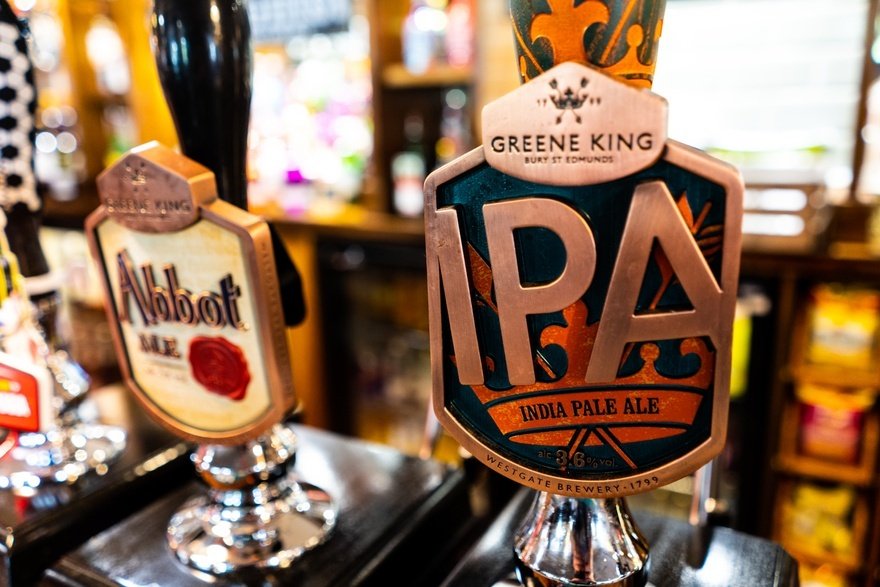Christie & Co forecasts the future for hotels, pubs and restaurants
"You've never had it so good". At least, that was the message for restaurateurs, according to the Christie & Co Business Outlook 2020, but hotel and pub operators have plenty to smile about too, with predictions of hotel investment and reduced rates of closure for pubs over the coming year
It's set to be a steady year for hospitality operators after mixed fortunes in the hotel, restaurant and pub sectors through 2019. The pub sector saw some dramatic transactions in 2019, with the sale of Greene King and Ei Group creating a spike in activity, while restaurants are still feeling the effects of the casual dining crunch with distressed sales on the rise. Meanwhile, Brexit uncertainty slowed the level of investment in hotels last year, though the brakes may come off now that there is a greater level of certainty and a majority government.
According to Christie & Co's Business Outlook 2020, pressure on profit margins will continue, particularly in the hotel market, while the pub sector – which is now leaner and fitter after the closures of recent years – will show more innovation and diversification.
The same is predicted of the restaurant sector, where new and niche operators will be able to find properties at attractive prices.
Chris Day, outgoing global managing director of Christie & Co, says: "The future looks brighter with a majority government. The certainty around Brexit and promised investment will generate positive business activity across the whole of the UK. Inward investment will undoubtedly pick up in the early part of 2020. The next five years and possibly beyond could mirror the growth and stability we experienced at the start of this century."
Restaurants
Emerging restaurateurs and niche operators have "never had it so good", as landlords offer incentives to fill sites and discerning consumers look for new and exciting concepts, explains Simon Chaplin, senior director for corporate pubs and head of restaurants at Christie & Co.
However, at the other end of the sector, many larger and more experienced operators continue to feel the effects of what has been dubbed the ‘casual dining crunch', which a Burger King and say we've got a vegan dish but it's cooked on a meat grill."
Delivery is expected to become a £5b marketplace in 2020, but Chaplin predicts it may be approaching capacity. He says: "I think it's going to come to a peak. The takeover of Just Eat shows consolidation and it's a finite market. Personally, I think restaurants have shot themselves in the foot by accepting delivery as a method to market. It's no surprise that the demise of the restaurant and growth of delivery have come at the same time."
Overall Chaplin sees a lot of cause for optimism. With the Brexit impasse broken, he predicts confidence will increase towards the end of the year as clarity over the UK's future hopefully emerges.
He adds: "There is more optimism and it's a great time for new operators to come in. If you've got one or two restaurants and want to grow to four or five, do it carefully, but you've got the upper hand. If you want to open a restaurant chain, now is the time to do it. The customer is looking for something new, something niche, something interesting. That's where the market will grow."
Hotels
The sale of the Ritz London and other iconic hotels in the capital is expected to head the revival of investor activity during 2020. Following a muted year for hotel transactions, in which the average price of properties increased by only 0.5%, compared to a rise of 5.8% and 4% in 2017 and 2018 respectively, it is expected that the market will pick up this year with the outcome of the general election and the certainty of Brexit renewing investor confidence. The sale of trophy assets will certainly help to boost the market.
While a deal for the five-red-AA-star, 136-bedroom Ritz London is yet to conclude, it has been reported that the Barclay brothers, the owners of the property since 1995, are in negotiations with Saudi private investment group Sidra Capital. It is believed that the hotel is carrying a price tag of around £800m.
Carine Bonnejean, managing director of hotels at Christie & Co, says: "We have seen the sentiment change in recent weeks. More potential buyers are now looking at investing in the UK and a few more owners are considering selling assets. There is definitely more interest around portfolios."
Announcements regarding a number of hotels with a value of around £40m-£50m coming to market with Christie & Co are due in the coming weeks.
With a boost in hotel sales, it is expected that 2020 will see the UK enjoy a larger share of the European transaction cake. Last year hotel sales across the UK were worth £22.7b, which amounted to 24% of all transactions in Europe – down from a peak of £27b and 40% of all European transactions in 2015.
Bonnejean says that the ongoing development of hotels across the UK is likely to have an impact on hotel performance, following 2019 when new supply resulted in a marginal 0.4% fall in revenue per available room (revpar) across the country, while London held up with a 3.7% increase in revpar, according to STR data.
Around 225 hotels are being developed in the UK, resulting in a 4% increase in total room supply. In Europe, the UK is second only to Germany in respect of hotel projects.
Regional cities such as Manchester, Glasgow and Bristol are expected to see double-digit growth in room supply by the end of 2022.
Alongside the increase in room supply, Bonnejean says that the market will also be negatively affected by declining profits as a result of increasing cost pressure from rising food prices and salaries. "The hotels that will struggle will be those that have become distressed in recent years as a result of underinvestment, especially in those locations where new, shiny hotels have opened," she explained.
Despite the increase in investor activity in the UK this year, Bonnejean expects that the fall in profits and increase in room supply will result in an overall stagnation of hotel prices. "There may even be a decline," she concludes.
Pubs
It was a bumper year for transactions in the pub sector, thanks to CK Asset Holdings' £4.6b acquisition of Greene King and Ei Group's sale to Stonegate for £1.3b. The dramatic sales pushed the total level of transactions to over £8b, which is more than the past 10 years combined.
Driving this activity is the strong performance in the sector, according to Christie & Co managing director for pubs and restaurants Stephen Owens, with beer volumes in growth and a more sophisticated level of operator diversifying business into food and accommodation.
"Driving the deals were attractive stock market valuations underpinned by property values," he says. "But equally the fundamentals of the market are all positive – the closure rate has slowed and, in fact, reversed slightly, the sector is better invested and the trading fundamentals are also positive. All that has resulted in a positive backdrop that has encouraged all the merger and acquisition activity."
Some 10,000 pubs have come out of the sector over the past 10 years, but this rate of decline has now slowed. Christie & Co has seen employment rise in pubs because smaller pubs have been replaced by larger pubs with better investment that have diversified into accommodation or flexible work spaces.
Owens adds: "Ten years ago the bottomend pubs were being sold for alternative uses, such as residential or convenience stores, but now those that are being sold are staying as pubs. There is still a place for wet-led pubs, but equally the market has diversified and food and accommodation has become more important. Managed houses in particular need a broad range of revenue streams."
Though activity in terms of transactions was remarkable in 2019 and average prices were up 4% year-on-year, Owens predicts deals will continue, though not at quite the same scale. "We know from what we're doing that there will be activity in the first quarter of this year," he says. "Certainly we're seeing packages of tenanted pubs coming to the market and private equity-led companies buying those. The family brewers are always acquisitive too, albeit for smaller packages."
Innovation in the sector, much like in restaurants, is coming from the smaller operators who in recent years have been able to pick up affordable sites, find a niche and grow a concept which may then be acquired by a large corporate which has the ability to roll it out. Owens says that as a result the freehouse sector has grown and seen more innovation.
"We've seen an increasingly professional approach from operators," he says. "People now see work in pubs as a profession rather than something that they come to from other professions as a lifestyle choice. We see some good-quality food operators attracted to the pub sector as it de-risks the business somewhat.
"It's all about diversification. We've seen pubs evolve in terms of the operational format and they've broadened their appeal from the wet-led community pubs they were 10-15 years ago."
Continue reading
You need to create an account to read this article. It's free and only requires a few basic details.
Already subscribed? Log In













